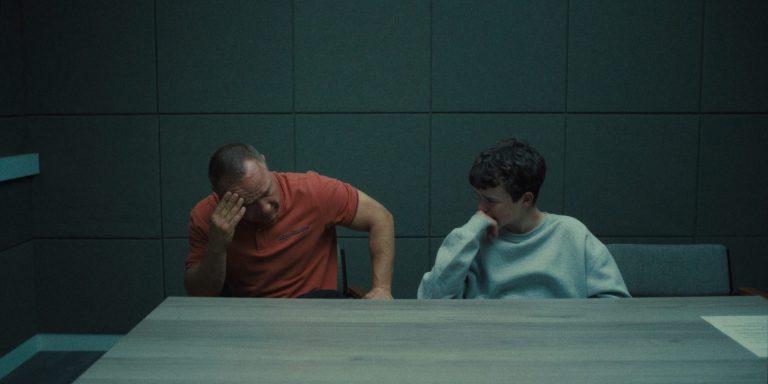I was meeting my old flatmate for a long overdue catch-up at Zahter, near Carnaby Street, when my phone began to blow up. The messages were all from men in my life saying that my Instagram account had been hacked and that porn was involved. The new account was using my real name and real photos intercut with intimate videos of a naked woman. There was a link to see more explicit content, available for paid subscribers.
My face burned, my ears rang, I began to cry. I started trying to figure out how to get the account down. They were using real pictures of me followed by porn of someone else and then more legitimate pictures of me. The humiliation was instant and devastating and then I got a message from my Dad that it had been sent to him.
I was 44. I knew the pornographic content was not of me and that my phone had not been hacked. Still, my physical reaction ricocheted between wanting to move countries and assume a new identity and wearing a sandwich board proclaiming that the naked images were not of me.
I don’t remember much of dinner, although I remember my friend advising, for my own safety, that I remove myself from social media and step back from the limelight as a campaigner for women’s safety and police reform. It was one of the worst nights I have had in the last five years advocating for women.
That it was sent to my dad added an additional element of shame to the already lethal mix of public degradation. And yet, I knew it wasn’t real. I knew the images were of someone else’s vulva. The intent was to silence me.
This emotion resurfaced when I watched Netflix’s Forever, Mara Brock Akil’s adaptation of Judy Blume’s 1975 novel of the same name. Set in 2018 LA, its eight episodes revolve around African American kids and their families while addressing consent, love and parenting, all in a beautiful coming-of-age story about respect.
In its opening scenes, we learn that Keisha, a brilliant track star and the female lead, has recently been forced to switch schools due to bullying after a sex tape with her trusted boyfriend was shared far and wide. As an adult, I wanted to go into hiding when images that weren’t even of me were shared, but I couldn’t fathom having videos of me at my most vulnerable shared around school.
Suggested Reading


My best friend’s murder
Judy Blume’s work has spoken directly to adolescent children for over five decades. In Are You There God, It’s Me Margaret (1970), Blume writes as an 11-year-old desperate for and terrified of getting her period for the first time. She gave us characters grappling with the same fears and wishes that we were experiencing at that same age.
As I binged Forever, I couldn’t help but think that it would be far more instructive for sex education than Adolescence. While Jack Thorne’s ground-breaking show exposes the consequences of deep misogyny, it offers no room for representations of the nuances of sexuality and consent in early experiences. Forever, meanwhile, is the best portrayal of the labyrinth of consent, sexuality and parenthood that I have seen. While Adolescence left me reeling with despair, Forever gave me hope.
Two specific scenes have stayed with me. In one, a family friend offers up her virginity to Justin, a friend of Keisha’s, because at least with him, it wouldn’t be bad or violent. I remember fooling around with my mom’s friend’s son as he was practically family and, therefore, inherently safe. That is not to imply that all family friends are harmless, but you are humanised as a result of childhoods spent together.
The other scene encapsulates the dynamic when someone you have already been intimate with pushes boundaries. It shows how saying no takes on a different dimension when it is with someone you love and have already given consent to previously.
We instruct girls to guard their bodies and reputations. We teach them to say no, to not tempt boys or put themselves in situations where they can be raped or taken advantage of. Then, we blame and shame them for male behaviour.
We don’t teach young women to embody and own their sexual experiences and pleasure. We go from “did you let him?” to “would a court of law believe me that I didn’t want to do that?” rather than celebrating the huge middle ground of desire that lies between, “I liked being kissed or touched like that” to “let’s not do that again”.
We think we teach girls how to say no, but we don’t teach them how to say yes. We don’t give them the tools to seek intimacy, connection and pleasure without shame attached.
All the while, we teach boys about conquest and the dehumanisation of girls. We show them swathes of violent porn and then expect them to be capable of respectful exploration of boundaries and experiences. We instruct men on coercion, while giving lip service to making sure she didn’t say no.
Forever exposes the real hurdles that boys and girls are facing while trying to navigate a world much complicated by porn’s accessibility. There are dick pics galore and kids trying to grow up way too fast without the safety net of anonymity that existed when I was growing up at a time without social media.
The show creates an access point to talk about sex and consent with young adults and parents, without being trite or condescending. For parents who were left shocked by Adolescence but none the wiser about how to address the manosphere, Forever is for you.




